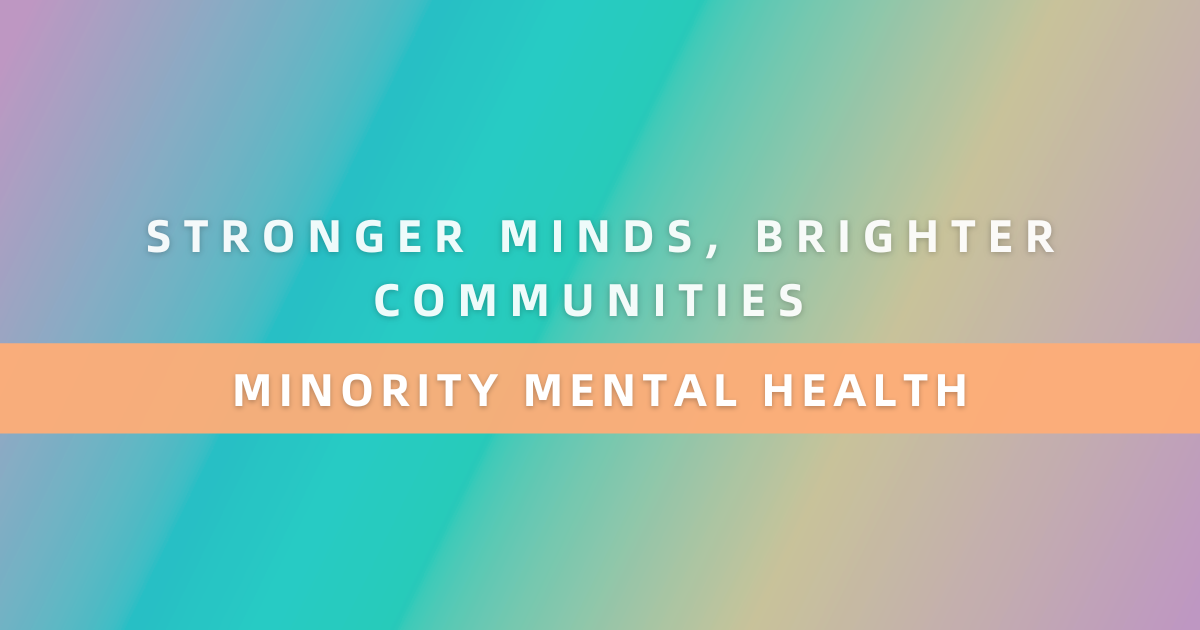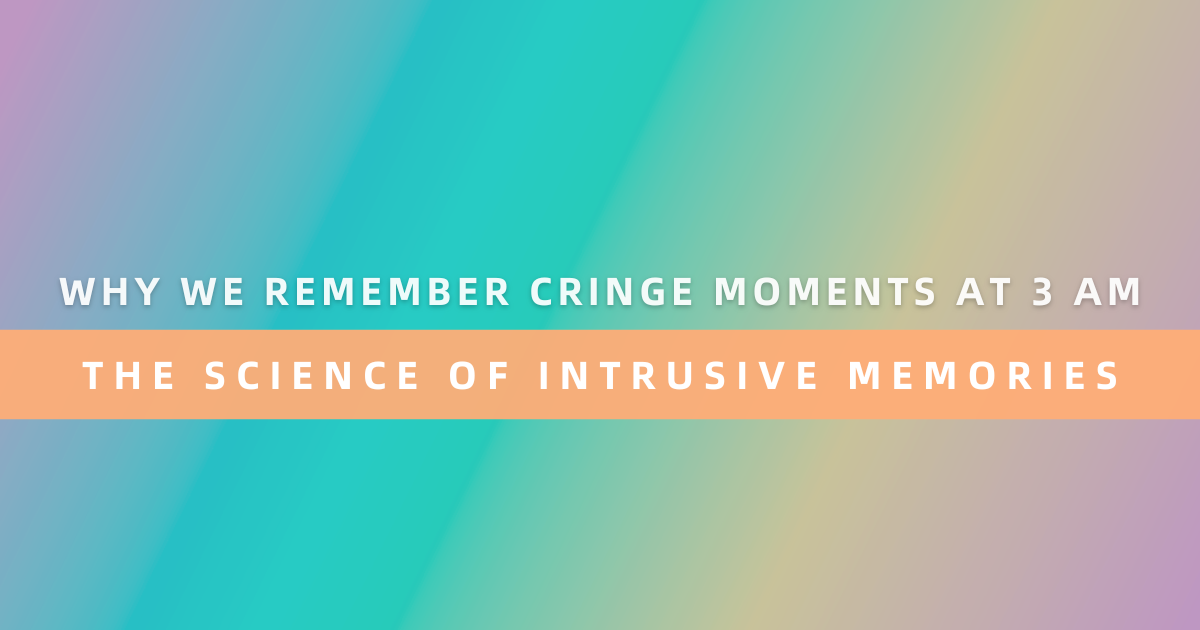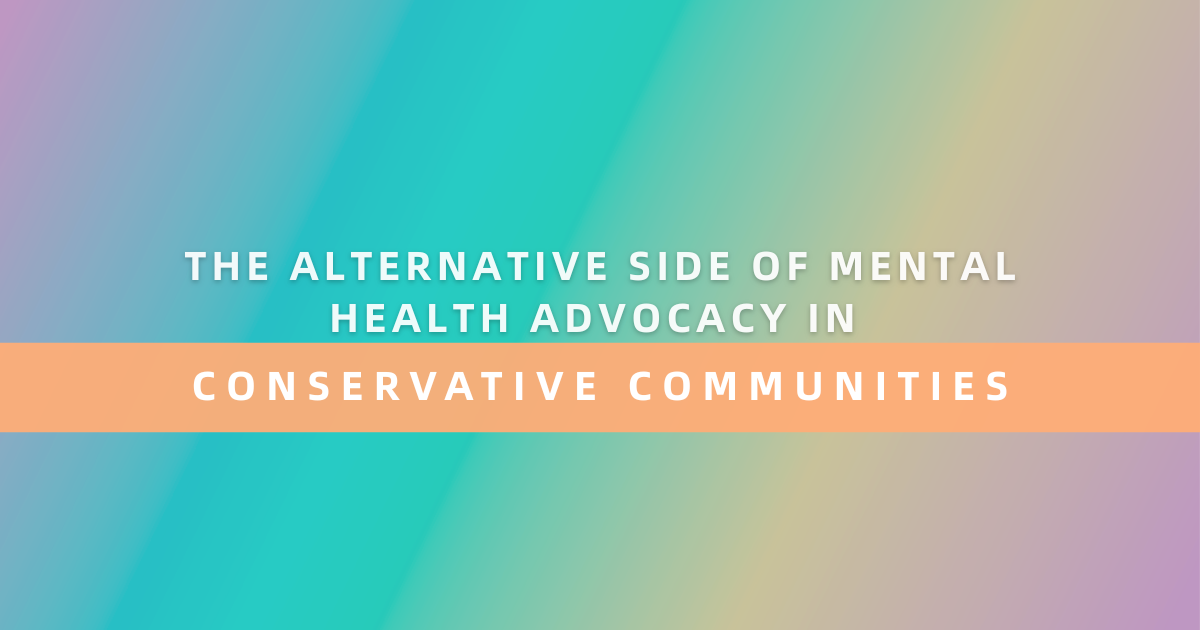Mental health shapes how people think, feel, and live, yet many in minority communities face barriers to care. Stigma, financial struggles, and limited access make it harder to seek help, but resilience and strength remain at the heart of these communities. Nearly one in four U.S. adults experiences mental health challenges, yet healing is possible when support is available. National Minority Mental Health Awareness Month reminds us that breaking barriers leads to stronger, healthier communities. When care is accessible, hope turns into action, and every step toward well-being creates a future where no one is left behind.
This article explores those challenges, celebrates community resilience, and offers resources to help individuals track their well-being and seek effective support.
Overcoming Barriers with Strength
Minority communities often experience higher levels of stress due to factors such as discrimination, socioeconomic disparities, and lack of access to culturally competent healthcare. The American Psychiatric Association reports that only one in three Black or Hispanic adults with mental illness receives treatment {2}, compared to nearly half of white adults. These barriers highlight the need for more inclusive mental health resources.
LGBTQIA+ individuals within minority communities experience higher rates of mental health issues due to stigma and discrimination. Studies show that LGBTQIA+ people are twice as likely to experience depression and anxiety, yet many do not seek professional help due to fear of judgment or lack of LGBTQIA+ affirming providers. Safe, supportive care can make a significant difference.
Resilience and Strength in Minority Communities
Minority communities possess powerful strengths and sources of resilience that support mental well-being. Strong family ties, tight-knit community bonds, rich cultural traditions, and faith-based support often serve as protective factors that help individuals cope with stress and adversity.
These factors show us that there is hope and capacity for healing within the community itself. Stories abound of communities coming together to support members in need or individuals transforming past hardships into motivation to help others. Resilience doesn’t eliminate challenges, but it equips minority communities with unique tools to cope.
Breaking Stigma and Embracing Support
Seeking help shows strength, not weakness. Mental health challenges are common, and support comes in many forms, including counseling, therapy, and self-care. More professionals today are learning how to support people from different backgrounds, which makes it easier to find care that feels personal and relatable.
Taking Charge of Mental Wellness
Self-monitoring is a powerful and positive habit. Journaling or using smartphone apps to track mood and emotions helps individuals notice patterns in their mental health and seek help when needed.
You can start with something as simple as tracking your moods and feelings over time. Self-monitoring is a powerful, positive habit – and it doesn’t have to be complicated. Some people use a journal to jot down daily reflections or mood ratings; others use mobile apps designed for mental health tracking. The benefit of tracking your mental health is that it builds self-awareness. By noting how you feel each day and what influences those feelings, you might discover patterns (for example, “I feel more anxious on days when X happens, or in the evenings, etc.”). This insight can help you make healthy changes and cope better.
Research shows that understanding your moods can help you manage them and improve your well-being. When you’re more aware of your emotional ups and downs, you can make informed lifestyle choices, avoid triggers for negative moods, and know when to reach out for support.
Technology offers new ways to manage mental health proactively. For example, Theryo is an AI-powered tool with privacy protections and security features supporting HIPAA compliance requirements. It allows you to securely log your moods, thoughts, and experiences, generating personalized reflection reports.
These reports can provide valuable insights to share with healthcare providers, ensuring they have detailed, accurate information to support them effectively.
Everyday Actions for Lasting Wellness
Mental well-being improves through small, consistent efforts. Simple ways to maintain a healthy mind and body include:
- Stay connected:
People with strong social ties have a 50% greater chance of survival than those without {1}. Connect with people who understand your experiences. This could be trusted family members, friends, mentors, or support groups (in-person or online) specifically for your community. Sharing with others who “get it” can provide comfort and reduce feelings of isolation. Strong social support is a known buffer against stress.
- Educate and Talk Openly:
Challenge stigma by learning and talking about mental health. The more we discuss mental wellness in places where people feel safe and connected, like homes, workplaces, community spots, or even a casual meetup with friends, the more we normalize it. You might start small – for example, share an article or a personal reflection about mental health with a friend. By speaking up, you send the message that it’s okay to talk about stress, depression, or anxiety. This can encourage someone else to open up or seek help. Knowing the common signs of mental health conditions and that treatment works can replace fear with hope.
- Talk to Someone Who Sees the Whole You Or Find Support that Makes You Feel Seen:
If you decide to consult a mental health professional, look for resources that respect your background. This might mean finding a therapist who shares or understands your culture or language, or using services geared toward minority populations (for example, therapy clinics in ethnic community centers or LGBTQ-friendly counseling services). Don’t be afraid to ask a counselor if they have experience with multicultural issues. Culturally responsive care leads to better outcomes. Many communities now also have peer support programs where trained individuals from similar backgrounds offer guidance and empathy.
- Seek help when needed:
Therapy and support groups provide invaluable guidance. Different things work for different people, and that’s okay. The key is to keep trying and not give up on finding the support you deserve.
A Future of Empowered Mental Health
When all members of our communities can thrive mentally and emotionally, everyone benefits. Progress may take time, but it is happening: conversations are opening up, more therapists are now offering open and inclusive Support, and innovative tools like Theryo are bridging gaps in care. Each small step – whether it’s checking in on a friend, attending a support group, starting a mood journal, or simply accepting that you have the right to help – contributes to this positive momentum.
Above all, remain encouraged. There is a growing movement of resilience and advocacy in minority communities around mental health. You are not alone on this journey. Reach out, use the resources available, and take pride in your strength.
Ready to take charge of your mental wellness journey? Start building self-awareness with Theryo’s AI-enhanced journaling tools designed with privacy and cultural sensitivity in mind. Your mental health deserves personalized support that understands your unique experiences.
Frequently Asked Questions
Why do minority communities face greater barriers to mental health care?
Minority communities often encounter systemic barriers including discrimination, lack of culturally competent providers, financial constraints, language barriers, and historical mistrust of healthcare systems. These factors combine to create significant obstacles to accessing and receiving quality mental health care.
How can I find a therapist who understands my cultural background?
Look for directories that specialize in diverse providers, ask for referrals from community organizations, contact ethnic community centers, or use online platforms that allow you to filter by cultural background and specialty areas. Many insurance providers also maintain lists of culturally competent therapists.
What should I do if my family doesn’t believe in mental health treatment?
Start with gentle education by sharing reliable information about mental health. Focus on the physical aspects of mental health conditions, draw parallels to other medical conditions, and emphasize that seeking help shows strength. Consider family therapy or involving a trusted community leader in the conversation.
Are there mental health resources specifically designed for LGBTQIA+ individuals from minority communities? Yes, many organizations provide specialized support for LGBTQIA+ individuals from minority backgrounds, including the National Queer and Trans Therapists of Color Network, LGBT National Hotline, and local community centers that offer affirming mental health services.
How can I track my mental health without expensive tools or apps?
You can start with a simple journal, noting your daily mood, sleep patterns, stress levels, and any triggers you notice. Use a scale of 1-10 for different emotions, track patterns over time, and note what activities or situations affect your wellbeing.
What are the signs that I should seek professional mental health support?
Seek help if you experience persistent sadness or anxiety lasting more than two weeks, difficulty functioning in daily activities, changes in sleep or appetite, withdrawal from relationships, substance use to cope, or thoughts of self-harm. Trust your instincts about when something feels wrong.
How can I afford mental health care if I don’t have insurance?
Explore community health centers that offer sliding scale fees, university training clinics with reduced rates, employee assistance programs, religious organizations that provide counseling, online therapy platforms with affordable options, and state-funded mental health programs.
Is it normal to feel uncomfortable talking about mental health in my community?
Yes, feeling uncomfortable is completely normal due to cultural stigma and generational differences in discussing mental health. Start small by talking with trusted friends or family members, and remember that your openness can help others feel more comfortable seeking support too.
How can I support someone in my community who is struggling with mental health?
Listen without judgment, offer practical support like helping with daily tasks, learn about mental health resources in your area, encourage professional help when appropriate, check in regularly, and take care of your own mental health to avoid burnout.
What role does faith or spirituality play in mental health for minority communities?
Faith and spirituality can provide significant support through community connection, coping mechanisms, and sense of purpose. Many people find that combining spiritual practices with professional mental health care creates a more comprehensive approach to wellness.
How do I know if an AI-powered mental health tool like Theryo is right for me?
AI-powered tools work well for people who want to track patterns in their mental health, prefer privacy in their initial self-reflection, need flexible access to support, and want insights to share with healthcare providers. These tools complement but don’t replace professional therapy when needed.
What should I expect from culturally responsive mental health care? Culturally responsive care includes providers who understand your background, respect for your cultural values and practices, consideration of how discrimination affects your mental health, incorporation of your cultural strengths and resources, and treatment approaches that align with your worldview and preferences.







